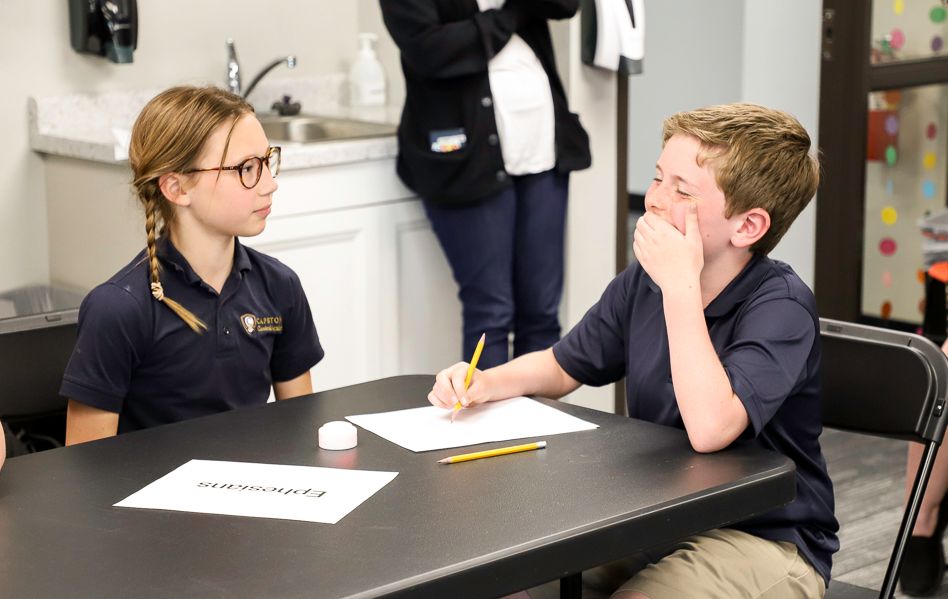The Capstone Community Covenant declares, “We, the parents, will teach and model the joyful pursuit of learning for its own inherent good. We respect that the school will teach our child to love God with his or her mind and that the goal of education is to know God and his creation so that we can serve and glorify Him in service to others.”
God is a joyful being. What might surprise you is that we, his children, bring Him joy. For Zephaniah declares, “The Lord your God is in your midst, a mighty one who will save; He will rejoice over you with gladness; He will quiet you by his love; He will exult over you with loud singing.” Think about that! God rejoices over us so much that his joy wells up into loud song.
Not only so, but He rejoices in doing good for us. The Old Testament prophet, Jeremiah, shares directly from the mind of God, “I will rejoice in doing them good, and I will plant them in this land in faithfulness, with all my heart and soul.” Not hesitantly but with all of his heart and all of his soul. This promise finds its ultimate fulfillment in Christ, in whom we see God loving us with all of Himself on the cross. God loves us with all of his heart and all of his soul, and He commands us to love Him with all of ours. In fact, Jesus teaches us that the greatest command is to “love the Lord your God with all your heart and with all your soul and with all your mind.” This command is not burdensome because we find our greatest joy in loving Him.
But what does loving Him look like? How does one show love to God? The apostle John says that we show our love for him by keeping his commandments. We are to keep his commandments with all of our heart, soul, and mind. At Capstone, we practice this kind of love for God in the ordinary things of each day. We want the ordinary day to train the heart to desire what is good, true, and beautiful, the soul to rest in being a child of God, and the mind to crave more knowledge of God—of his nature and his will.
We are training minds to see more of God’s nature and will through all of their studies, not just in Bible classes and chapel services. We know that all that we study was created for and through Christ and that all things are held together by Him (Colossians 1:16-17). So we look for his glory in everything—in math there is the exquisite glory of his order and precision; in science there is the glory of his artistry and engineering; in history there is the glory of his redemptive and restorative work in fallen man; in music and art there is the glorious mystery of God speaking to our souls without words; in literacy and composition there is the glory of his relational nature—that He would speak to us and empower us to speak and pass meaning on to others. These glories are not a given. We could just as easily not exist or could live in a world without these surpassing mercies. Therefore we relish the fact that we can learn at all and rejoice in the deep meaning and purpose of all that is.
If learning were about acquiring the necessary skills and knowledge to get a paying job so that we could acquire things and pay bills for those things, we could not include the joy of learning as a commitment in our community covenant, for this aim does not foster joy; economic utility is not the aim of education. When we rightly observe and study the world around us and within us, we respond to the wonder of it all by exulting in God’s glory. We love Him more because of what we come to know. We are empowered to obey his commands and to live in keeping with his intentions for human flourishing. This is how we love Him, and this is how we experience the joy of learning.
